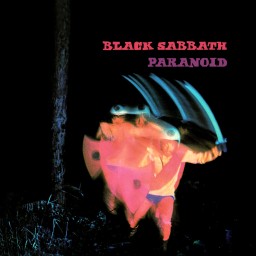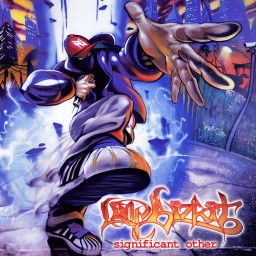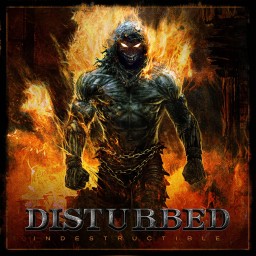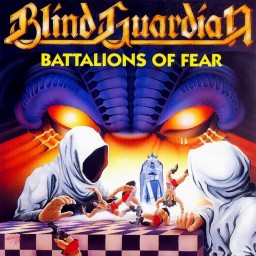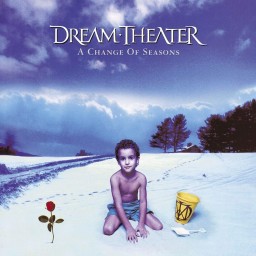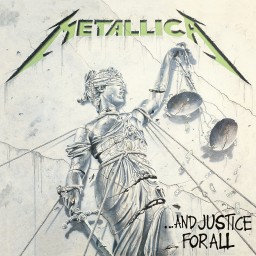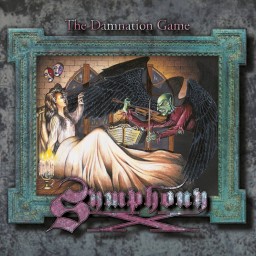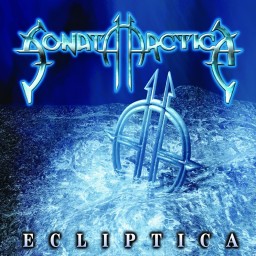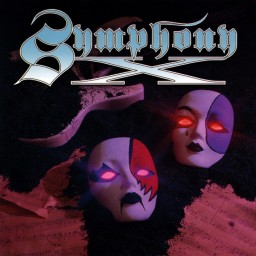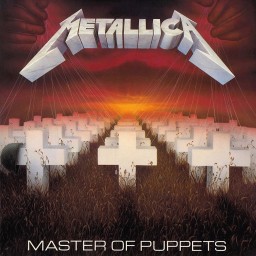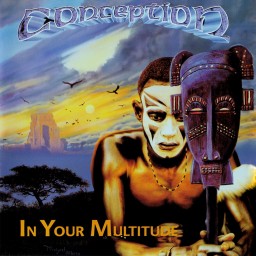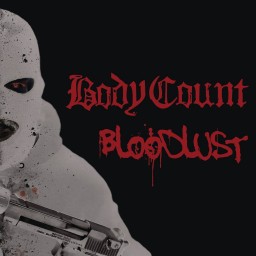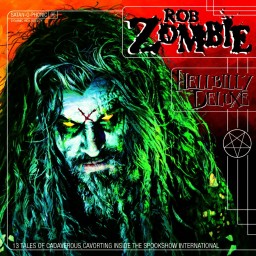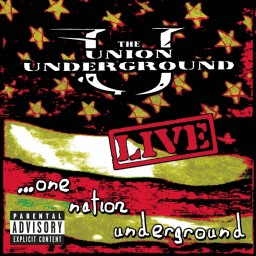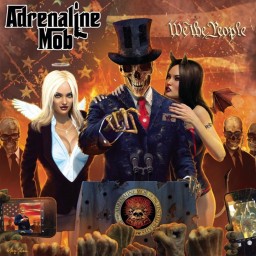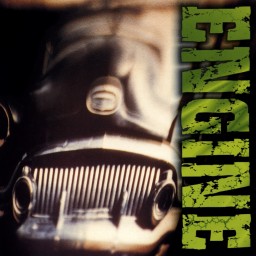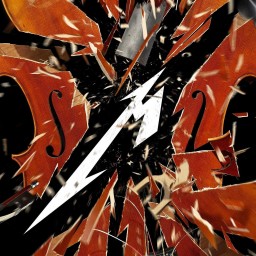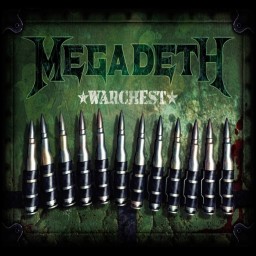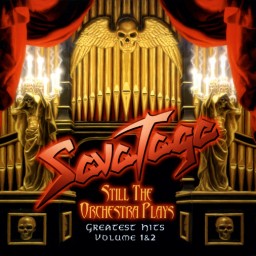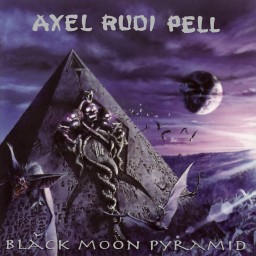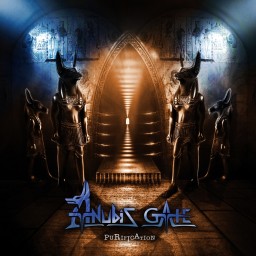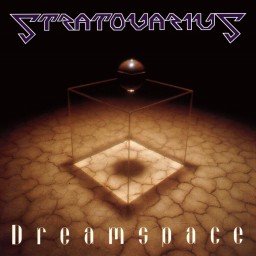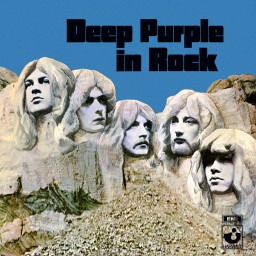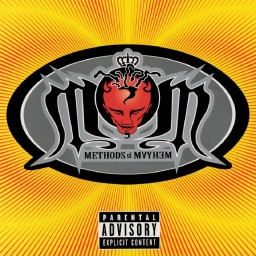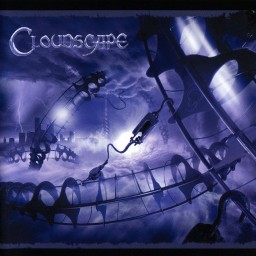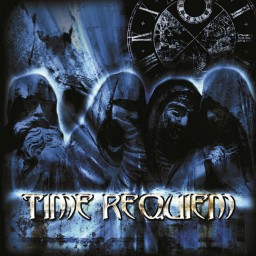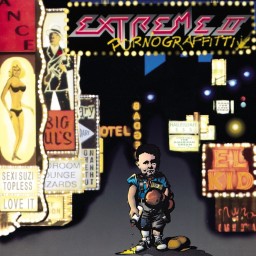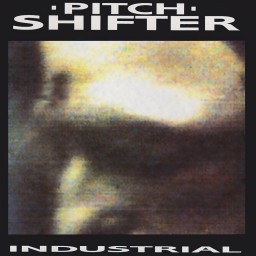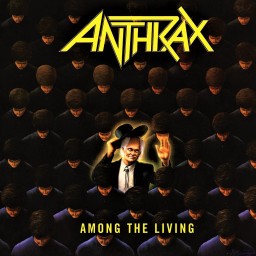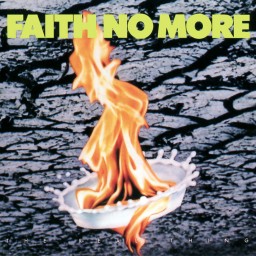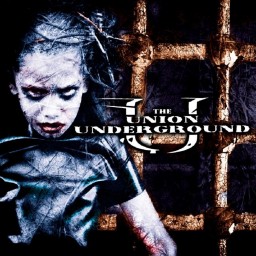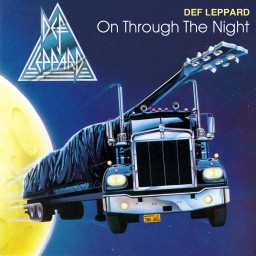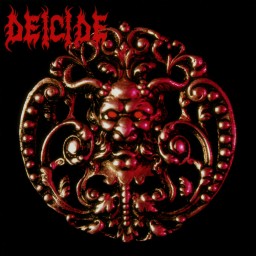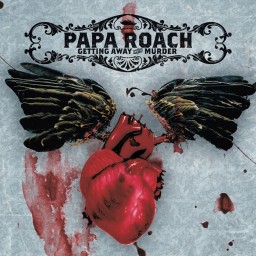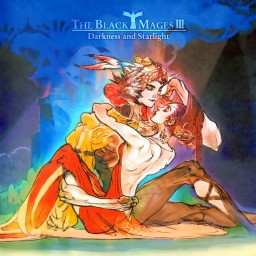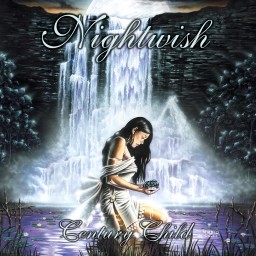MartinDavey87's Reviews
I’m not the biggest fan of Black Sabbath. Admittedly, I got into metal around the end of the 90’s, and by that time Sabbath seemed a bit dated to me. I was all about the rising nu metal scene, as well as the thrash metal bands which were still hanging in there (just about). Of course, I gave Sabbath a chance, and in fairness, I don’t dislike them, but ‘Paranoid’, supposedly THE greatest metal album of all time, just doesn’t quite work for me.
None of the guitar riffs, which are meant to be some of the greatest guitar riffs ever, or so I’ve heard, don’t really do anything for me. Maybe it’s the production of the time, but they just seem kind of dull and flat, lacking the audible punch that later bands would have. Ditto for the vocals.
Maybe it’s just a product of its era, but then, I listen to a lot of other music from different eras, so surely that can’t be it. Maybe it’s just been so overhyped over the decades that there was no way it could live up to my personal expectations. Maybe there’s something wrong with me. I don’t know. It’s got the likes of ‘Paranoid’, ‘Iron Man’ and ‘War Pigs’, which, again, are meant to be some of the most iconic metal songs ever, but I can’t really think anything more of them than “they’re okay”.
Heavy metal was still a fledgling and evolving genre at this point. How could it be possible to really create such a classic’s classic in such early days? An important and inspirational album? Yes. A pivotal moment in metal history? Sure. But being better than anything that’s come since? Really? Maybe bands joke about it, but perhaps the adage that “Black Sabbath created metal, [insert band name here] perfected it” isn’t too far off.
I don’t totally dislike Black Sabbath though, and I think over time they do go on to produce far better works than this. But I just can’t get into this. No matter how much I love my rock and metal, ‘Paranoid’, arguably one of the most highly revered and beloved metal albums of all time, just doesn’t quite do it for me.
Genres: Heavy Metal Stoner Metal
Format: Album
Year: 1970
It’s crazy to think, but when Limp Bizkit’s second full-length album, ‘Significant Other’, was released way back in 1999, not only was it a huge hit, but gradually built up to the Florida five-piece becoming one of the biggest bands on the planet. For all the angst, attitude and cheesiness, it’s exactly what people, in particular, the youth of the world, needed back then.
Bizkit’s sound is heavily influenced by a combination of 90’s alternative metal and hip-hop, building upon the style established by bands like Korn, and in particular, Stuck Mojo. Some tracks here are all-out metal, while some sway more towards hip-hop, with more focus being on vocalist Fred Durst rapping. Both work well for the band, with Durst effortlessly being able to blend clean singing, aggressive shouting, and rapid-fire rapping. And his vocals fit perfectly with guitarist Wes Borland’s creative and interesting guitar playing.
And if you’re into this sort of thing, there’s a few appearances from some noteworthy vocalists, including Jonathan Davis from Korn, Aaron Lewis from Staind, Scott Weiland from Stone Temple Pilots, Les Claypool of Primus fame, and the one that probably had the most impact, Wu Tang Clan’s Method Man. His duet with Fred on hit single ‘N 2 Gether Now’ likely helped the band gain more mainstream recognition, as well as appeal more to hip-hop audiences.
‘Significant Other’ features an abundance of great tracks, such as heavy hitters ‘Nookie’, ‘Trust?’ and ‘Just Like This’, huge hit ‘Re-Arranged’, which shows the bands melodic abilities, and rap-inspired tracks such as ‘Show Me What You Got’ and the aforementioned ‘N 2 Gether Now’. Then of course, there’s one of the biggest nu metal anthems ever, ‘Break Stuff’. If you don’t get pumped up at the sound of those opening chords and Fred Durst proclaiming that ‘It’s just one of those days…’ then you really need to stop taking it all too seriously.
Overall, ‘Significant Other’ is a great album that still holds up well today. It came out at just the right time that people needed aggression in their music, but also enough catchy hooks that mainstream audiences were able to get involved too. It’s a huge step up from their debut, and shows a band who are heading on to greater things.
Genres: Alternative Metal
Format: Album
Year: 1999
Having already laid down the foundations for their post-nu metal career with 2005’s ‘Ten Thousand Fists’, Disturbed have finally shed the stigma that came with the subgenre, and established themselves as a legit and credible metal band with 2008’s ‘Indestructible’.
The band has managed to take the groove-laden guitar style of the aforementioned subgenre whilst blending it effortlessly with an old-school metal mentality and vibe. As a result, ‘Indestructible’ is an album brimming with hooks, choruses and intense guitar work that can appeal to metal fans old and new alike, as well as more casual listeners too.
David Draiman’s melodic vocals work fantastically, his unique style has always given Disturbed their own sound. And they work in complete synergy with Dan Donegan’s guitar riffs, which perfectly capture the essence of traditional metal with the styling of nu metal. Donegan really lets rip a number of times on this album, and shows that he’s more than capable of shredding up the guitar when necessary, but can also show restraint when it’s needed.
Highlights from this release include ‘Indestructible’, ‘Inside the Fire’, ‘Perfect Insanity’, ‘The Night’, ‘Criminal’, ‘Divide’ and ‘The Curse’. The first three tracks in particular were all downloadable content for the incredibly popular 2007 video game ‘Rock Band’, which no doubt helped boost the bands popularity to no end around the time of this albums release.
With a number of stand-out tracks and an outlet for a whole new audience, ‘Indestructible’ is another strong outing by Disturbed, who have so far gone from strength-to-strength since the demise of nu metal, and have firmly cemented themselves as one of the standout metal bands of the 2000’s.
Genres: Alternative Metal
Format: Album
Year: 2008
The first time I heard of Blind Guardian was in 2002, when I'd bought Iced Earth's 'Dark Genesis' collection and they were mentioned a number of times in the biography section. It wasn't too long after that I was in a music shop, coincidently in the bands home country of Germany, where I saw a double pack of 'Battalions of Fear' and it's follow-up album 'Follow the Blind' pretty cheap. Didn't even have to think about what to do.
By this point, I was no longer the young, metal whippersnapper that I was when I'd first heard of Blind Guardian. I had a good sense of what I was into, and, to be blunt, I found this album to be pretty boring and dull.
Fast-forward a couple more years, and MySpace is suddenly booming and it's easier than ever to discover bands. THAT'S when I really got into Blind Guardian! I can't remember which song I heard, but it was big! It was epic! It was bombastic! It was full of metal riffs and glorious orchestrations... it was incredible! How did I not get into this band the first time around?!
I swiftly snapped up most of the groups back-catalogue, then set to work familiarizing myself with their discography...
And that leads me right back to square one; this album is still pretty bland.
There's just nothing really exciting going on here... y'know what I mean? 'Majesty' is an okay song, but most of the tracks are pretty basic power/speed metal. The production leaves the music feeling empty of life, and a lot of the melodies, both musical and lyrical, are just boring and uninteresting.
It's not a terrible album, but if you're looking for some generic and bland 80's power metal, there's much better stuff out there.
Genres: Power Metal Speed Metal
Format: Album
Year: 1988
Considered by fans to be one of Dream Theater's best songs, 'A Change of Seasons' is the bands first venture into an old prog standard; the 20-minute epic! Clocking in at 23 minutes long, the title track of this release was originally intended for the 'Images and Words' album, but left off due to time restrictions.
No problem! Chuck a few live covers in there, and here we have arguably one of the greatest EP's of all time.
With such a lengthy track, you know that each musician will get the chance to show off their skills, and indeed they do! All five members (including newcomer Derek Sherinian on the keyboards), flawlessly show their mastery of their respective departments, with the song twisting and turning through all kinds of time signatures and dynamic changes, crafting a wonderful tale that takes us on a journey through life and reminds us of how quickly it passes by.
As for the other "half" of this EP, there are four live covers that I don't mind, but are kind of hit-or-miss for me. Covering Elton John, Deep Purple, Led Zeppelin and a medley consisting of Kansas, Queen, Journey and Genesis, none of them are terrible, but in fairness none of them are overly memorable either. Blatant filler.
As a whole, it's a great record, and an absolute must-have for fans of Dream Theater, and whilst the title track itself is entirely worth hearing, it's the covers that prevent this from getting a five-star rating. Still, it's as essential to your collection as any of the bands studio albums.
Genres: Progressive Metal
Format: EP
Year: 1995
It's 2001 and I'm 14 years-old, new to the world of metal, and a huge Megadeth fan (or so I thought...). They'd just released their album 'The World Needs a Hero', in which they went "back to their metal roots" (every band goes through this phase). Tuning into Kerrang TV, they were midway through a video that, for whatever reason, I suspected it may have been Megadeth's video for 'Moto Psycho'. It was heavy, it was aggressive, and I was headbanging to it with my measly one inch of hair which I couldn't wait to grow longer. I also couldn't wait to get the new Megadeth album because this song kicked ass!
Except, it was Metallica's 'One'.
2001 was an exciting year for a 14 year-old metal fan living in the UK. With the nu metal scene having completely taken over the world, no doubt with huge thanks to the few channels that had popped up on TV dedicated to rock music, the genre was rife with bands such as Linkin Park, Korn, Slipknot and Limp Bizkit. However, despite all the bands that were tearing up the charts, it was Metallica's '...And Justice For All' that I was seriously digging. I loved the ten-minute songs with two-minute intros. I loved the complex arrangements with constant shifts in dynamics. I loved the guitar harmonies. I loved it all!
There's no denying the influence this had on me around that period of my life. Eventually leading me to progressive metal, a genre this album arguably had a huge hand in influencing in its infancy, bands like Dream Theater and Symphony X just seemed like the next logical step from here. Intricately crafted guitar riffs, harmonies and solos, with some of Lars Ulrich's most challenging drumming (which, fair play to the guy, he may have a rather limited skill set, but he sure busts his chops on this one), make this Metallica's most ambitious album, with the band themselves often citing how this was the most complex stuff they'd done.
The production is often criticized, but I was too young to care about such trivial things when I first got this record, so I find myself unfazed by it now. In fact, I find the sound, which comes across as very dry and gritty, sets the mood perfectly for this incredibly dark and bleak album. And with songs like 'One', 'Blackened', 'Harvester of Sorrow', 'Dyers Eve' and 'The Frayed Ends of Sanity', this is an absolute classic that belongs in the collection of any metal fan.
Genres: Thrash Metal
Format: Album
Year: 1988
Symphony X are back with their second album and a sound that will quickly distinguish them as one of the top prog metal bands in the world.
The differences between this and their self-titled debut are noticeable immediately. Besides the addition of powerhouse vocalist Russell Allen, who's incredible voice can easily switch between both melodic and aggressive styles, the production has been vastly improved and the songwriting is a lot more confident and refined.
The songs on 'The Damnation Game' flow so much fluidly than before. Michael Romeo's intense riffs and exotic solos are much more tasteful, and Michael Pinella's keyboards never sounded this beautiful on 'Symphony X'. While this is far from the bands most ambitious work, it's still a solid blueprint which the New Jersey quintet would build upon with future releases.
Featuring highlights such as 'The Edge of Forever', 'A Winter's Dream', 'The Haunting' and the title track, the reason this only gets a three-star rating is because, despite being a really good record, honestly, it just pales in comparison to what's to come. Such is the strength of the bands later output that I find myself very rarely listening to this one. Still, if you're a fan of Symphony X, then this is definitely an album worth owning!
Genres: Neoclassical Metal Progressive Metal
Format: Album
Year: 1995
This is a fairly decent debut album by Kamelot, who at the time were nothing more than a generic power metal band. Progressive elements seen in later albums are rare and discreet, and the band are yet to develop a lot of the more exotic flavours heard in their later songs. But overall, there are still some great compositions on this record.
There are very few keyboard parts and the musicianship is nowhere near that of most prog/power metal bands, but that doesn't prevent a few memorable riffs popping up, such as 'Eternity' and 'The Gleeman', and 'Etude Jongleur is a nice, though short, melodic passage.
There isn't really much else to say about this album to be honest. If you're a fan of Kamelot then it's worth getting, and I think it's generally worth picking up for anyone if you can find it cheap somewhere. Kamelot didn't really hit their stride until keyboards became a more primary instrument and with the addition of vocalist of Roy Khan (who, if you're already a Kamelot fan prior to buying this album, you'll definitely notice his absence), but this still holds up well as a look at a young band who will definitely go on to better things.
Genres: Power Metal Progressive Metal
Format: Album
Year: 1995
Power metal has always been the ginger-haired stepchild of heavy metal. It's cheesy. It's repetitive. And sometimes it's Sonata Arctica, in which case, it kicks ass!
Sonata Arctica's debut album burst onto the scene with such gusto and youthful enthusiasm, it's hard not to like it. There's fast-paced neoclassical speed metal guitar shredding, and lots of cheesy 90's keyboard harpsichord sounds. The lyrics focus on the usual themes of fantasy, love, kingdoms and over nonsensical topics we're not really bothered about, because it comes with the territory, and above all else though, it really is 100% cheese, and that's what we love about the genre!
I first came across this band when I heard 'Replica' on a compilation CD. I loved it! I was completely blown away by how awesome this band sounded and to this day, that is still one of my favourite songs (and I still have no idea what it's about, either). I rushed out to get 'Ecliptica' and was not disappointed. 'Kingdom for a Heart', 'Full Moon', 'Letter to Dana', 'Mary Lou' and 'Picturing the Past' are all fine examples of why power metal should never be so easily dismissed. Oh, and 'Replica' too!!!. This album is worth it for that song alone.
I've been stuck for ages writing this review, struggling to think of anything clever or witty to say. The truth is, this is a typical power metal album, and if you're not a fan of the genre, you won't notice any difference here between Sonata Arctica and any other band. But there's just some sort of charm about this record that makes it fresh and exciting, and definitely worth trying out.
Genres: Power Metal
Format: Album
Year: 1999
After his 1994 solo release, guitarist Michael Romeo was met with a proposal from a record label to form a band and record an album in the similar vein to his solo material. "Sure, why not?"... and thus was born one of progressive metals most popular and influential bands.
Borrowing heavily upon the neoclassical style of shred made famous by Yngwie Malmsteen, Symphony X's self-titled debut release is a humble album that shows a band with the potential for big things, with the only major setback being the rather subpar production. While it's certainly not terrible, it just lacks that little bit of punch that the music really needs. It's a punch that would be added to future releases, and the difference is immediately noticeable.
As for the music itself, it's nowhere near as ambitious as the bands later releases, which would go on to utilize massive orchestrations, but it's still pretty good, and lays down a solid foundation upon which the band would establish their defining sound. As expected, Michael Romeo's guitar playing is the star of the show here, with his neoclassical virtuosity matched perfectly by keyboardist Michael Pinella, both displaying enough talents to secure their careers in a post-grunge metal scene. Vocalist Rod Tyler does a good job, and is vastly underrated for his work on this album, but it's his only appearance with the group and he will soon be overshadowed by his replacement, powerhouse singer Russell Allen.
'Symphony X' overall is a good debut, with early signs of greatness evident. 'Masquerade', 'The Raging Seasons', 'Premonition', 'Thorns of Sorrow' and the ballad 'Shades of Grey' are all notable reasons why this should be in your collection, and if you're a collector like me, it's certainly not one you'll regret having to own.
Genres: Neoclassical Metal Progressive Metal
Format: Album
Year: 1994
‘Master of Puppets’ is without a doubt one of the greatest heavy metal albums of all time. Taking what they started on ‘Ride the Lightning’ and pumping it full of steroids, this takes all the best elements of Metallica's previous album and magnifies it a thousand times over, firmly placing Metallica amongst metal's royalty.
A nice combination of heavy and melodic, ‘Master of Puppets’ mirrors its predecessor very closely, but at the same time it manages to maintain its own identity. Opening track ‘Battery’ is very similar to ‘Fight Fire with Fire’, starting with a nice clean guitar harmony, followed by riffs of complete chaos that'll destroy all your senses. ‘Welcome Home (Sanitarium)’ takes the ballad concept started on ‘Fade to Black’ and pushes it further than anyone thought possible, and ‘Orion’ is a nice eight minute instrumental that can go toe to toe against ‘The Call of Ktulu’ any day.
Despite the similarities, ‘Master of Puppets’ shows a band becoming more mature with each release. The lyrics are even more grim and darker than before, and the song-writing, especially on tracks like ‘Master of Puppets’ and ‘Welcome Home’, shows a band that has developed closer over the years to become as tight as they can be, with Hetfield and Hammett's guitars working in perfect harmony with Burton's bass-lines and Ulrich's (somewhat limited) drum skills.
Often cited as the single greatest metal album in history, it’d be hard to disagree.
Genres: Thrash Metal
Format: Album
Year: 1986
Released in 1995, ‘In Your Multitude’ is the third studio album by Norwegian progressive metal band Conception. It follows on from 1993’s ‘Parallel Minds’ pretty closely, sounding almost identical in writing, sound and production, so much so that in all honesty, it’s often hard to tell the two albums apart. And as a result, despite being on my playlist for over a year, I still don’t really know what to say about it.
‘In Your Multitude’ isn’t a bad album, by any stretch. There’s some solid songwriting and excellent musicianship, in particular, with a strong emphasis on guitar acrobatics. And fans of Roy Khan (who would go on to front power metal legends Kamelot for a number of years) will enjoy hearing him in his earlier days.
The problem though, is that this is overall, a very average release. While there are a number of pretty decent songs, including ‘Under a Mourning Star’, ‘Missionary Man’, ‘Carnal Comprehension’ and ‘A Million Gods’, it just sounds too much like its predecessor, and in all honesty, there’s countless other things I’d rather listen to.
Genres: Progressive Metal
Format: Album
Year: 1995
Released in 2017, ‘Bloodlust’ is the sixth studio album by rap metal band Body Count, the metal project formed by hip hop legend Ice-T. After an eight year hiatus, the band struck back with 2014’s ‘Manslaughter’, an album that was arguably the heaviest thing they’d ever put out, and instantly helped the band gain momentum with their return. This brings us to ‘Bloodlust’, which follows on exactly where its predecessor left off.
Once more pushing the boundaries with how heavy they can get, ‘Bloodlust’ is a non-stop assault of absolutely massive guitar riffs, rapid-fire lyrics spewing pure vitriol and frustration, all packed into 41 minutes of anger, aggression and political statements. 59 year-old Ice-T hasn’t mellowed with age, in fact, he sounds more pissed off than ever, rapping about crime, violence, corruption, and all the usual subjects that he’s been rapping about since the late 80’s, yet sadly, are still as relevant today as they ever were.
It’s insane how monstrously heavy this thing is. Having ramped up their sound and production to fit perfectly with the modern metal landscape, songs like ‘The Ski Mask Way’, ‘Civil War’, ‘All Hope is Lost’, ‘Black Hoodie’ and the title track itself, show a band who are pulling no punches and taking no prisoners. Particular highlight, ‘No Lives Matter’, is probably one of the best songs Body Count has ever written, probably one of their most relevant too. And along with guest appearances by the likes of Dave Mustaine and Max Cavalera, and a cover of the Slayer classic, ‘Raining Blood’, it’s clear that ‘Bloodlust’ is not for the faint of heart.
While there may be a couple of tracks I find fairly passable, overall, this is a very solid album from start to finish. Ice-T and co. have proven that they’re here to stay, and showing with ‘Bloodlust’ that 25 years since their debut, and getting heavier with each release, they still have plenty to say, and are just getting warmed up.
Genres: Alternative Metal Groove Metal
Format: Album
Year: 2017
Released in 1998, ‘Hellbilly Deluxe’ is the debut solo album by Rob Zombie, taking his first steps into a solo career after the disbandment of his former group, White Zombie. With plenty of horror overtones and imagery, and a huge-sounding production, giving the music an incredibly big, beefy sound, it’s a high-octane adrenaline ride of industrial and groove metal.
Well, the first few songs, anyway.
The album starts off with some absolute bangers, such as ‘Superbeast’, ‘Demonoid Phenomenon’, ‘Living Dead Girl’, and of course, the dance floor filler, ‘Dragula’. These are all fantastic songs that combine heavy grooves and thumping beats, and Rob’s instantly recognisable gravelly vocals are great for getting the listener pumped up. Overall, he has a great sound and style going on here. But it’s not to last.
Sadly, I find that after those few tracks, the album gets quite repetitive. I struggle not to zone out, but it feels like I’m hearing the same song over and over. Even the vocals, both melodies and lyrics, start to feel quite samey in every song. It’s frustrating, because the album starts on such a high, but from the midway point, my interest just seems to vanish.
There are a few songs with weird vocal effects or some such tomfoolery, as well as some “interlude” songs, and none of these inspire me to pay closer attention. And it’s a shame, because I am a Rob Zombie fan, and while ‘Hellbilly Deluxe’ generally seems pretty well-received, I just can’t seem to enjoy it all the way through. Regardless, if the first few songs are anything to go by, Mr. Zombie’s solo career should be an exciting ride, and I look forward to checking out his next album!
Genres: Industrial Metal
Format: Album
Year: 1998
This is a fantastic live EP by forgotten nu metal quartet the Union Underground. Released in 2002, it features six tracks and flies by in 20 minutes, but it’s an adrenaline-packed 20 minutes that doesn’t let up for a moment.
The Union Underground only ever released one album, 2000’s ‘…An Education in Rebellion’, and that was literally one anthem after another, and this live performance perfectly reflects that, with the band smashing through a number of songs, full of energy and youthful vigour. They should have gone so much further than they did.
The sound is really good, the performances are tight, and the set list is great, including such bangers as ‘South Texas Deathride’, ‘Killing the Fly’, ‘Revolution Man’ and their biggest hit, ‘Turn Me On. Mr. Deadman’, but overall, this EP isn’t really worth owning unless you’re a big fan of the band. Their only studio album is an absolute gem from the nu metal scene at the turn of the century, and it’s cheap enough too, so just get that instead.
Genres: Alternative Metal
Format: EP
Year: 2002
Released in 2017, ‘We the People’ is the third studio album by American groove metal band Adrenaline Mob. Following on from previous outings, it’s full of massive-sounding, energetic, fist-pumping anthems of a very high standard. While the band was originally considered a supergroup when they first formed (they still are, somewhat…), it’s pretty obvious by this point that the core of the band is vocalist Russell Allen (of Symphony X fame), and guitarist Mike Orlando.
Not that that’s a bad thing, as these two have fantastic writing chemistry. Orlando’s absolutely furious guitar playing is insane, and Allen has one of the most incredible voices ever. Sounding extremely “metal”, yet able to drop emotion in on a whim, both of their styles fit really well.
As for the music, yeah, it’s pretty similar to everything they’ve released before, but why fix what isn’t broken? It’s heavy, groovy and melodic, and an amazing production gives it the massive, beefy sound that it deserves. Highlights include ‘King of the Ring’, ‘Raise ‘Em Up’, ‘We the People’, ‘The Killer’s Inside’, ‘Bleeding Hands’ and ‘Chasing Dragons’, but, to be honest, the whole album is just brimming with bangers, and each track flows into the next effortlessly.
Overall, ‘We the People’ is another fantastic record by one of the most underrated metal bands of the 2010’s. Everything about this album, from the songs, the production, even the artwork and the imagery, all fall perfectly into place, and if you like your music heavy (and you’d better, if you’re listening to this), then this is definitely an album worth owning.
Genres: Heavy Metal
Format: Album
Year: 2017
Originally released in 1993, ‘Live Shit: Binge & Purge’ is an audio and visual tour de force of live music by Metallica. During the absolute peak of their world tour for 1991’s ‘Metallica’, they released a monstrous box set featuring three different concerts, two on video (later DVD, thankfully) and one on three CD’s.
Having become worldwide megastars with their 1991 self-titled release, the band would go on to tour the world, multiple times for over a staggering three years. Which brings us to the CD’s and the first DVD; the live album part of it is from a show in Mexico City, whilst the DVD is of a similar show from San Diego. Both concerts are fantastic, with excellent performances, sound, and in the case of the DVD, great picture. However, one major downside is the endless “noodling” and messing around between songs.
Yeah, it’s come to be expected, and is pretty harmless enough, but there’s so many random solo spots, messing around, jams, and countless other bits of shameless banter, that after a while, it does wear a bit thin. At one point, there’s 20 minutes of tomfoolery before they start another song, and during ‘Seek and Destroy’ James interacts with the crowd for over ten minutes. It’s fun at first, but after repeated listens, it does get quite boring fast.
Then there’s the second DVD, filmed in Seattle and taken from the bands 1989 tour in support of ‘…And Justice For All’, and this is a fantastic concert. This was a great time for the band as they were still “on the way up”. The playing is incredibly tight, the sound and picture are excellent, especially given the age of the footage, and with a great set list to boot, this random addition to the box set makes it totally worthwhile.
Everyone performs brilliantly on all three concerts. Even Lars, bless him, far from the best drummer in the world, but his boundless enthusiasm and excitement is infectious, and Jason Newsted’s copious amounts of energy makes me sad for how things turned out for him. With around nine hours of content, ‘Live Shit…’ is certainly not for the faint of heart, but overall, any detriments aside, this is an absolute beast of a box set, and truly belongs in every Metallica fans collection.
Genres: Heavy Metal Thrash Metal
Format: Live
Year: 1993
Engine are an alternative metal supergroup, consisting of Ray Alder from Fates Warning, Joey Vera from Armored Saint (and also Fates Warning), as well as Bernie Versailles from Agent Steel, and Pete Parada, at the time in a band called Face to Face, but would eventually go on to drum for bands such as Halford and even The Offspring.
Released in 1999, ‘Engine’ is their self-titled debut album. Considering the progressive metal background of some of the musicians involved, it’s surprising that this is a very stripped down, laid back affair, focusing on a more groove metal sound that fits in with the nu metal-influenced scene at the turn of the century. I guess sometimes these guys just want something nice and easy to rock out to.
And rock out, they do! ‘Engine’ is brimming with plenty of heavy and grooving guitar riffs, Ray Alder’s fantastic vocals work great with this style of music, and the writing here is very polished. The band plays together very well, almost feeling like a “proper band” and not a “side project”.
Standout tracks from the record include ‘Tree of Life’, ‘Falling Star’, ‘Monster’, ‘Alone’ and ‘I Don’t Need’, but in all honesty, at barely 44 minutes in duration, this is a solid listen from start to finish. Engine might be a pretty obscure band for the casual metal listener, but if you’re a fan of any of the musicians involved, or like your metal simple, without endless noodling and complex melodies, then you can’t go wrong by giving this a go.
Genres: Alternative Metal Heavy Metal
Format: Album
Year: 1999
Twenty years after the first ‘S&M’ concerts, and Metallica team up once more with the San Francisco Symphony Orchestra for a musical extravaganza, as metal meets classical in the ultimate musical collaboration.
Containing two CD’s and a DVD of the concert, ‘S&M2’ lives up to its predecessor, but is as different as it is similar. Besides advancements in technology allowing for much, much better sound and picture (on the DVD), the band have this time, taken the performance from a concert hall to a huge arena, and with thousands of Metallica fans in attendance, the audience participation really enhances the experience, especially on the ending of ‘The Memory Remains’.
The differences don’t stop there. What’s noticeable on the DVD, is that, unlike the first ‘S&M’, where Metallica were in their late 30’s, battling shifting musical trends, addictions, and personal strife, and “taking a risk” with the whole endeavour, this time the band are now all in their late 50’s. They’re sober, a cohesive unit, and they’ve done this before, and you can see how they seem so much more relaxed this time around. Conductor Edwin Outwater’s visual energy is infectious, and the orchestra musicians are no doubt, absolute professionals, but I can’t help but feel like the pep talk backstage was something like “hey, don’t worry, just have fun”.
If any risks are taken this time around, it’s the middle segment which sees the orchestra given time to shine. With classical pieces, a double bass tribute to Cliff Burton, as well as an orchestral version of ‘The Unforgiven III’, which sees James Hetfield go guitar-less. I don’t think this has happened since he burnt his arm in the early 90’s?
While sentimentality and nostalgia will always make me prefer the first ‘S&M’ over this one, the reality is that ‘S&M2’ is every part it’s equal. Featuring classics such as ‘One’, ‘Enter Sandman’ ‘For Whom the Bell Tolls’ and ‘Master of Puppets’, as well as newer songs, ‘The Day That Never Comes’, ‘Moth Into Flame’, and ‘Halo On Fire’ (which sounds incredible with the orchestra), the CD’s and DVD make for a fantastic audio and visual experience, and this is as essential a part of any Metallica collection as the first. Will the band still be around in their 70’s for part three? Let the waiting begin!
Genres: Heavy Metal Symphonic Metal
Format: Live
Year: 2020
Released in 2007, Megadeth’s compilation boxset, ‘Warchest’, is an absolute tour-de-force of material. A great collectable for fans, you’ve got four discs of music and a DVD, which covers a huge variety of original songs, covers, demos, live recordings, and everything else in between.
The first three discs are compilations running in chronological order through the bands career. Interspersed with live tracks, demos, remixes, live recordings and short interludes of Dave Mustaine talking, they cover every aspect of the band, from 1985’s ‘Killing is My Business…’ all the way up to 2004’s ‘The System Has Failed’. This is a fantastic starting point for newcomers to the band, or a great retrospective for long-time fans.
My only real complaint here is that most of the songs are the 2004 remasters. Not that it’s that big of an issue, but personally, I think a lot of these tracks sounded better in their original versions.
Disc four is a live concert from Wembley Stadium in 1990. Shortly after the release of ‘Rust in Peace’, this is thrash-era Megadeth at their best, and the live recording proves that. And finally, disc five is a live DVD, shot in 1992. Admittedly, I love Megadeth, but live, I do find them a little boring. They kind of play the songs, and that’s it. Occasionally they headbang, but they don’t really seem overly animated. Still, the sound and picture are great, and at barely 50 minutes in duration, it’s a totally harmless watch, and more than worthy of belonging in this boxset.
Die-hard fans will want this for any unreleased tracks, in particular, discs four and five. Accompanied with a 36-page booklet, and beautiful 3D packaging, this is a fantastic set, and while it might seem a little dated by today, the absolute wealth of material makes it a must-have for fans.
Genres: Thrash Metal
Format: Compilation
Year: 2007
‘Still the Orchestra Plays’ is a 2010 compilation album by legendary cult metal band Savatage. After years of inactivity, this CD package just randomly popped up from nowhere and probably left most fans wondering if it was a sign that anything new was coming. Sadly, that was not the case, as it would be another three years until the band would once more pop up out of the blue with a re-released narrated version of their rock opera, ‘Streets’.
But back to this one, and yeah, as you’d expect, this is a fantastic compilation! Two discs full of absolutely top quality music. Sure, there’s a few omissions that I feel should have been included, but overall, it’s a nice career retrospective, perfect for newcomers to the band, or long-time fans who need a reminder of how brilliant these guys are.
From ‘Power of the Night’, ‘Hall of the Mountain King’, ‘Gutter Ballet’ and ‘Edge of Thorns’, to the likes of ‘Morphine Child’, ‘The Wake of Magellan’, ‘Chance’ and ‘One Child’, there’s no shortage of Savatage classics here. And three newly-recorded acoustic versions of previous hits are a welcome sign that the band were still trying to somewhat maintain active.
This CD package comes with a bonus DVD, which has the classic ‘Japan Live ‘94’ concert on it. Originally released on VHS, it was nice to finally be able to own a copy of this. Granted, the sound and picture are quite dated, but the performances are excellent, and it’s just great to be able to see a full concert video of the band.
Overall, this is, quite simply, a fantastic compilation. It’s definitely a great starting point for newcomers, but also has plenty of value for fans too. A worthy addition to any rock or metal collection!
Genres: Heavy Metal
Format: Compilation
Year: 2010
Released in 1996, ‘Black Moon Pyramid’ is the fifth studio album by German hard rock guitarist/band Axel Rudi Pell. It follows on from the incredibly strong ‘Between the Walls’, which marked a creative shift in the band, as the quality of writing, production and overall performances took a huge step up.
However, in all honesty, perhaps they took a slight step back with this one. It’s a solid album, don’t get me wrong, and continues in exactly the same vein as its predecessor, but there’s just nothing overly remarkable I can think of to comment on.
‘Fool Fool’, ‘Getting’ Dangerous’, ‘Hole in the Sky’, ‘Touch the Rainbow’, ‘Aquarius Dance’ and the title track itself are all good songs, displaying furious guitar virtuosity and Jeff Scott Soto’s powerful vocals that demand attention. But that’s about all I can think of worth mentioning. ‘Black Moon Pyramid’ has been on my playlist for quite a white now, and I just couldn’t figure out what to say about it. It’s a solid, hard rock record, simple as that.
Genres: Heavy Metal
Format: Album
Year: 1996
Released in 2000, ‘Chocolate Starfish and the Hotdog Flavored Water’ is the third studio album by American rap rockers Limp Bizkit, who, having gained mainstream recognition with their previous outing, really stepped up the ante on this one, and produced an album that totally defined an era. Not just in music, but in pop culture.
It’s crazy to think how big this band was back in 2000, but Limp Bizkit were literally one of, if not THE, biggest band on the planet. ‘Chocolate Starfish’ produced five chart-topping singles, a memorable soundtrack to a huge, Hollywood blockbuster, the music to one of the most highly revered Wrestlemania events of all time, and had mainstream appeal thanks to cameos by hip hop superstars DMX, Xzibit and Method Man.
And in all seriousness, it holds up well to this day. I know it’s cool to hate this band, and it’s cool to hate this album… but whatever, I love it! It’s just pure energy and attitude throughout, whilst never taking itself too seriously, nor coming across as a parody. The band have a sound and style that they stick to, and don’t care what anyone thinks. Fred Durst’s lyrics are often daft, but always memorable, and Wes Borland’s unique guitar playing is taken to a whole new level here. The production is fantastic too, and this sounds as fresh and exciting as it did way back at the turn of the century.
Need proof of how awesome this is? ‘Rollin’’, ‘Take a Look Around’, ‘Boiler’, ‘My Generation’ and ‘My Way’ are all the massive anthems that everyone knows, but in their shadows are some fantastic tracks such as ‘Hotdog’, ‘The One’, ‘Getcha Groove On’ and ‘I’ll Be Ok’. This is an incredibly well put-together album. If you’re looking for something deep and introspective, this isn’t for you. Neither too serious nor too daft, this album hits all the right spots if you just want to rock without a care in the world.
Genres: Alternative Metal
Format: Album
Year: 2000
Having heard a number of random tracks over the years, Anubis Gate are a band I’ve always held in pretty high regard. Typical of most European progressive metal bands, they’re not very well known, but despite remaining mostly off the grid, they’ve put out an impressive array of high-quality albums. Keen to delve properly into their discography, 2004’s debut, ‘Purification’, seemed like the best place to start.
Except it probably wasn’t.
Sadly, to my surprise, I’ve found this a very hard album to get into. I’ve had it in my playlist for what feels like forever, and I just can’t seem to really remember anything from it. Every time I play it I zone out. The playing is fantastic and there are a few rather tasty guitar riffs, likewise, vocalist Torben Askholm has a great voice that really suits the music and its themes. But the overall writing is just so dull, all the songs seem to mesh together and just plod along at the same pace, all sounding similar to each other and thus, making it impossible to really distinguish most of them.
If I had to pick out any highlights, ‘In the Comfort of Darkness’, ‘Hypernosis’ and ‘Downward Spiral’ are all decent enough, but even then, I don’t think I could sit and listen to them all the way through without losing interest. And it’s a shame, because I know this band are capable of much better than this. But overall, ‘Purification’ just does nothing for me, and it’s fortunate that I’m already familiar with some of the bands later material, otherwise, had this been my first exposure to them, I probably wouldn’t bother coming back.
Genres: Progressive Metal
Format: Album
Year: 2004
Following on from two fairly lacklustre albums, 1994’s ‘Dreamspace’, the third studio album by Finnish power metal band Stratovarius, starts to show some early signs of the Stratovarius we’d all go on to know and love.
As before, the music is a fairly upbeat, energetic power metal, but the band are starting to incorporate some progressive elements in their song-writing, with keyboards in particular, becoming more prominent. Band leader Timo Tollki is a fantastic guitarist, and his neoclassical style of shredding is brilliant. However, while I give him credit for handling vocal duties whilst playing guitar, his singing can be a bit boring and uninspired at times.
Unlike the previous two releases, this one actually has a number of memorable songs, including ‘Abyss’, ‘Reign of Terror’, ‘Hold On to Your Dream’, ‘Chasing Shadows’, ‘Wings of Tomorrow’ and the title track itself.
Sure, some of the slower songs tend to drag, and particular mention must go to ‘Thin Ice’, which is absolutely awful, but the aforementioned tracks are all fantastic, and while ‘Dreamspace’ isn’t likely to be anyone’s favourite Stratovarius album, it’s a very confident release, and a sure-fire sign that the band are constantly improving.
Genres: Power Metal
Format: Album
Year: 1994
After three releases playing psychedelic rock, and one playing classical with an orchestra, it was time for Deep Purple to truly establish their identity and give us a taste of who they are. With a major line-up change and at the insistence of guitarist Ritchie Blackmore, the band would go down the route of a heavier, more hard rock style, and it would pay off in dividends.
Released in 1970, ‘In Rock’ would go on to become one of those classic, genre-defining albums. Along with Black Sabbath and Led Zeppelin, Deep Purple were laying down the foundations of heavy metal with a bigger guitar sound and a high standard of musicianship by everyone involved.
‘In Rock’ would also see the debut of vocalist Ian Gillan, who’s banshee-like wailing set the bar for metal vocalists a decade before Bruce Dickinson and Rob Halford were screaming their hearts out. Giving the band a much broader and more versatile range to work with, the chemistry between Blackmore, Gillan and keyboard player Jon Lord (and everyone else, for that matter) really starts to shine through here. For the first time since their debut album, the band sound genuinely inspired and confident.
With that out of the way, I do think that perhaps you had to be there in 1970 to truly appreciate this album the most, because listening to it today, there are a number of songs I tend to skip. But the ones I don’t skip, such as ‘Black Night’, ‘Speed King’, ‘Child in Time’ and ‘Bloodsucker’, are without a doubt, Deep Purple classics. And packaged with its iconic and instantly recognisable artwork, this album is a pivotal moment in rock and metal history, and thus, belongs in everyone’s collection.
Genres: Non-Metal
Format: Album
Year: 1970
Back in 1999, drummer Tommy Lee quit world-famous glam rockers Mötley Crüe, to embark upon a new endeavour delving into the (then) increasingly popular world of rap metal. The result was a smorgasbord of genres and guest appearances known as Methods of Mayhem.
Personally, I love rap metal. I think the worlds of metal and hip hop blend together perfectly. Both in musical terms, in attitude, and in image, the two were made for each other. And this album is a fine representation of that. With an excellent production and very polished writing, this album is nonstop adrenaline and energy.
Besides Tommy Lee, this album features the likes of Fred Durst, Kid Rock, Snoop Dogg, Lil’ Kim, Phil X, Chris Chaney, The Crystal Method, and Mix Master Mike. There’s a true mix-up of rockers and rappers, but somehow the album flows coherently, as though everyone is all operating under the umbrella of this being one very legit band, rather than a whole bunch of guest appearances for the sake of it.
Sadly, there are a couple of songs that are kind of passable, but for the most part, this is a solid album, and when the band get it right, damn, they really smash it out of the park! ‘Hypocritical’, ‘Who the Hell Cares’, ‘Get Naked’, ‘Proposition Fuck You’, ‘Anger Management’, ‘Narcotic’ and ‘Crash’ are all absolute bangers that make this album a more than worthy addition to any rock, metal, or hip hop collection. The only real shame is that it would be ten years until the next album.
Genres: Alternative Metal
Format: Album
Year: 1999
I’ve had this album on my playlist for quite a while now, mainly because I just couldn’t think of anything in particular to say about it! ‘Cloudscape’ is the self-titled debut album by Swedish progressive metal band, uh, Cloudscape. Released in 2004, this sounds very typical of bands in this genre, but with an emphasis on strong writing, melody, and catchy hooks.
The band members are all excellent musicians, and I particularly love the blending of melodic keyboards and heavy, crunchy guitars. And this album has that in abundance, as well as powerful vocals, interesting lyrics, and a fantastic production. There isn’t anything overly unique about this band, but that’s fine. Not every album needs to reinvent the wheel. Sometimes good music just speaks for itself.
Admittedly, with that said, at one hour in duration, the album does drag a little at times, with some of the songs sounding kind of similar to one another. But on the other hand, some of them are absolutely fantastic! ‘As the Light Leads the Way’, ‘Witching Hour’, ‘Everyday is Up to You’, ‘Under Fire’, ‘Out of the Shadows’ and ‘Slave’ are all amazingly well written songs, and should be more than enough to satisfy any progressive metal fan.
Genres: Progressive Metal
Format: Album
Year: 2004
‘Time Requiem’ is the 2002 self-titled debut album by Swedish progressive power metal band, Time Requiem. Formed by keyboard player Richard Andersson, the band plays a style very typical of progressive metal, with a strong neoclassical influence, and an emphasis on powerful vocals and fantasy-themed lyrics.
The most prominent aspect of Time Requiem’s music is shredding, and it comes in boatloads! Andersson and guitarist Magnus Nordh are absolute beasts on their instruments, furiously ripping up the chromatic scale at every opportunity. It makes for some lavishly flavoured riffs and colourful solos, but sadly it does get a little repetitive after a while.
Most of the songs are very strong and well-written, but also rely on similar tropes. At times, they sound very reminiscent of other bands, such as Symphony X, Dream Theater and Stratovarius. But if you can accept a group wearing its influences on its sleeves, then you might just enjoy tracks such as ‘Watching the Tower of Skies’, ‘Time Requiem’, ‘Milagros Charm’, ‘Visions of New Dawn’, ‘The Aphorism’ and the absolutely psychotic instrumental, ‘Brutal Mentor’.
‘Time Requiem’ can be challenging to sit through in one go, especially if you’re not keen on the sheer technicality of the music, but perseverance and repeated listens can be rewarding. Over time, the album grew on me, and while the band offers nothing new or unique, this is a very solid debut, and I’m excited to hear where things will go with future releases.
Genres: Neoclassical Metal Power Metal Progressive Metal
Format: Album
Year: 2002
‘Extreme II: Pornograffitti’ is the second album by American hair metal band, Extreme. Released in 1990, it came out at a time when there was a sense of change in the air. While grunge hadn’t yet completely taken over the world, there was certainly a feeling that a lot of the glam and party antics of the 80’s were becoming dated, which is unfortunate for this Boston quartet, as they had just released what could arguably be considered their best album.
I’ll never understand why hair metal was on such a decline back then, with energetic showmen traded for angsty introverts and flashy guitar solos traded for three chords. Perhaps people were just sick of the image of it all, or just not being able to relate to the lyrics? But regardless, the musicianship was still truly spectacular. For Extreme in particular, praise must go to guitarist Nuno Bettencourt, whose absolute ferocity on the guitar is insane, and vocalist Gary Cherone has an incredible and charismatic voice that totally fits the funky shred style of the riffs.
And I won’t leave out drummer Paul Geary and bassist Pat Badger, who are absolutely solid as a rhythm section, providing plenty of groove and funk.
There’s an absolute abundance of hits on this album, but particular highlights for me include ‘Decadence Dance’, ‘Get the Funk Out’, ‘It (‘s a Monster)’, ‘When I’m President’, the frantic shred-fest that is ‘He-Man Woman Hater’, soft ballad ‘More Than Words’ (which was actually a massive hit for the band), as well as the title track itself. But in all honesty, this album is just non-stop banger after banger, and if you can shake off the 80’s glam stigma, this is an incredible album, and an essential addition to every rock or metal collection.
Genres: Alternative Metal
Format: Album
Year: 1990
I first got into Pitchshifter when I heard the song ‘Genius’ on the soundtrack to ‘Mortal Kombat: Annihilation’ way back in the late 90’s. I loved that song back then, and very quickly got into albums like ‘Deviant’, ‘PSI’ and ‘www.pitchshifter.com’. I enjoyed their energetic industrial style and their rebellious attitude, and these were very impressionable on a young, teenage me.
But then it came time to delve into their back catalogue and check out their debut album, and… what the hell happened here?!
Gone is the industrial energy and rebellious anthems, and in their place, is some sludgy, grimy, death metal nonsense. Not that I really have anything against sludge or death metal for the record, but I just find this album plods along at a very slow, very dull, and very repetitive rate. The incoherent vocals, indistinguishable guitar riffs and mechanical drum machines do nothing for me.
And I tried. I really did. I had this on my playlist for a little while and gave it multiple listens, but absolutely nothing is sticking. I just find myself constantly bored and wanting to listen to any one of the bands later releases, which I know they’ll go on to release some true industrial gems. So with that said, this will retire to the CD shelf, most likely to never be played again, but kept because my collector OCD dictates that it needs to stay with the rest of my Pitchshifter collection.
Genres: Industrial Metal
Format: Album
Year: 1991
Released in 1987, ‘Among the Living’ is the third studio album by American thrash metal band Anthrax, and is hailed by fans as one of the genres greatest albums. Much like the other members of thrash metal’s “big four” (look ‘em up if you don’t know), Anthrax were at this time, riding an upward trajectory of both creative and critical success. Their previous outing, ‘Spreading the Disease’, solidified them as one of metal’s most promising bands, and this follows on exactly from where they left off.
With the same line-up of musicians, having toured and played together for a number of years now, it’s no surprise that everyone is firing on all cylinders here. The twin-guitar assault sounds even tighter than before, with rapid-fire thrash riffs that refuse to slow down. The bands tongue-in-cheek approach is here in spades, in particular with vocalist Joey Belladonna’s performances, sometimes serious, oftentimes humorous, all the time impressive. All the ingredients for a great Anthrax record are here.
The production sounds good for its time, though nothing overly remarkable, it sounds pretty much as you’d expect an 80’s thrash album to sound, and it holds up well to this day. With fist-pumping anthems such as ‘I Am the Law’, ‘Indians’, ‘Caught in a Mosh’, ‘Among the Living’ and ‘Efilnikufesin (N.F.L.)’, there’s an abundance of Anthrax classics here, helping make ‘Among the Living’ an essential album that belongs in every metal fans collection.
Genres: Thrash Metal
Format: Album
Year: 1987
Released in 1989, ‘The Real Thing’ is the third studio album by alternative metal band Faith No More, and is notable for being the first to feature vocalist Mike Patton. With former frontman Chuck Mosley gone, it’s the addition of Patton that helped the Californian’s truly find their sound and establish themselves as a huge name in the rock and metal world. A certain hit single didn’t hurt, either.
Further pushing the boundaries of where they could take their music, Faith No More’s chemistry as a band really started to pay dividends here. Blending metal, funk, and even pop and disco elements, with a variety of singing, rapping and growling, the band really hit a creative high with their unique sound and unique singer.
Of course, the main focal point of ‘The Real Thing’ is arguably the bands most well-known song and their biggest hit, ‘Epic’. A song that still garners endless radio rotation to this day! Along with ‘Epic’, there are other great tracks, such as the energetic ‘From Out of Nowhere’, the funky ‘Falling to Pieces’, the heavy ‘Surprise! You’re Dead!’ or the title track itself. Though, I must admit I do feel halfway through the album there’s a decline in quality. While the songs are easy enough to sit through, I generally find them quite passable.
Still, overall, this album is regarded as a classic, and rightfully so. It really put Faith No More on the map as mainstream superstars for a short time, and while their brief flirtation with commercial music wouldn’t last long, this record still holds up pretty well to this day, and definitely belongs in the collection of every rock and metal fan.
Genres: Alternative Metal
Format: Album
Year: 1989
When discussing music, there will always be the topic of underrated or forgotten artists. For me, when it comes to the nu metal scene from the late 90’s to early 2000’s, there’s always one band that comes to mind. And that band is Stuck Mojo.
After that, it’s The Union Underground!
‘…An Education in Rebellion’ is the first (and to date, only) studio album by Texas quartet, The Union Underground. Released in 2000, this is an absolutely fantastic 34-minute slab of nu metal. Full of short, energetic anthems, there’s no messing around here, just one banger after another.
The band have their sound absolutely nailed, with amazingly heavy and crunchy guitars and some fantastic vocals that perfectly blends clean singing and shouting, but with enough aggression to mesh the two together flawlessly. This is all emphasised by the incredibly polished song-writing and punchy production that puts these guys ahead of so many of their contemporaries, and produces one of the best sounding and most pumping albums from that era.
However, despite doing the opening theme for WWE Raw for a number of years, and being hand-picked to tour with Marilyn Manson, The Union Underground just never really took off. From what I recall, they were never heavily featured on TV or radio, never really received much (if any) magazine coverage, nor were they prominent in any major tours or festivals. And it’s a shame, because they certainly deserved to be much bigger than they were.
With an abundance of unforgettable anthems, such as ‘South Texas Deathride’, ‘Bitter Man’, ‘Until You Crack’, ‘Drivel’, ‘Natural High’, ‘Revolution Man’, and their biggest hit, ‘Turn Me On Mr. Deadman’, it’s a travesty that we never heard more from these guys, as this album truly is an absolute gem from the nu metal days, and still sounds as fantastic today as it did back in 2000.
Genres: Alternative Metal
Format: Album
Year: 2000
Released in 1980, ‘On Through the Night’ is the debut album by legendary British metal band, Def Leppard. It thrust the Sheffield rockers into the upper echelon of what was known as the New Wave of British Heavy Metal, and along with bands such as Iron Maiden and Saxon, helped revitalise the stagnating metal genre and carry it into the 80’s, where it would reach all new heights of success and popularity.
This however, is a very different band to the one that would become worldwide megastars just a few years later. Switching stadium anthems for a more traditional heavy metal sound, the writing here is raw, but the energy and passion amongst the members is very palpable. From one intense hard rocker to the next, this album doesn’t let up with its blistering, nonstop guitar riffs and early precursors to what will become the bands trademark sing-along choruses.
Highlights include some early Def Lep classics, such as ‘Rock Brigade’, ‘Rocks Off’, ‘Hello America’, ‘It Could Be You’, ‘Sorrow is a Woman’ and ‘Answer to the Master’, each one giving us a taste of what this band is truly capable of. With a great production and its iconic cover art, there’s no doubting this is a solid debut album, and while it may not be the bands best or most famous work, it’s still a worthy addition to any rock or metal collection.
Genres: Heavy Metal
Format: Album
Year: 1980
‘Deicide’ is the 1990 self-titled debut album by Florida-based death metal band, Deicide. I can admit prior to listening to this, that I’m not the biggest death metal fan. I’ve dabbled in it here and there, but mostly find it just too aggressive. But over my years of dipping my feet in the water, there’s been a handful of bands that I “didn’t mind”.
Decide is one of them.
Well, at least, I thought they were. Because this, their debut album, does nothing for me.
I’ve given it multiple spins, hoping that something will catch on, but it’s just not happening. Glen Benton and his motley crew are all more than competent musicians, but none of these songs stick with me. Just endless, mind-numbing guitar riffs that offer nothing other than the usual chugging away on the bottom string, with guttural, aggressive death metal vocals to boot.
I’m sure Deicide were one of those bands I “didn’t mind” for a reason. Maybe they just needed time to evolve, mature or develop their sound a bit more. Perhaps, rather than reviewing their albums in chronological order, I’ll pick something from a few years later, when they’ve established themselves and “found their groove” so-to-speak. Or perhaps I should just put the death metal down and go back to listening to some Yes or Nickelback.
Sorry Decide fans. This one’s just not for me.
Genres: Death Metal
Format: Album
Year: 1990
After 2000’s hugely successful ‘Infest’, and it’s follow-up, 2002’s ‘Lovehatetragedy’, Papa Roach, like many, shifted their sound away from the dying nu metal subgenre, and became more grounded in hard rock or post grunge (or whatever style all the nu metal bands became once the fad died down). It was around this time that I lost touch with Papa Roach, a result of my own musical tastes changing, so I was keen to revisit these superstars from my teenage years to see what they’ve been up to since I left off.
‘Getting Away With Murder’ sees Papa Roach do away with a lot of the metal elements in their music, with the most notable being that the guitars don’t quite sound as edgy or aggressive. There’s less focus on rapping vocals, and the lyrical content itself is nowhere near as bleak or angst-ridden as before. The songs are a lot more poppy and radio-friendly, with vocalist Jacoby Shaddix displaying more singing ability than he’d done on previous releases.
But none of this is a detriment. Sure, it’s not quite the same Papa Roach that caught everyone’s attention by ‘cutting their life into pieces’, but there’s still some good, well-written rock songs that show a band maturing and evolving. I might have been disgusted at this change back in 2004, but now, I can see it for what it is. And I’m glad to be making up for lost time.
‘Take Me’, ‘Getting Away With Murder’, ‘Scars’, ‘Blood (Empty Promises)’ and ‘Be Free’ (which features an amazing vocal performance) are all great radio rock songs that demonstrate the band changing with the times whilst still maintaining a high quality of writing. And while ‘Getting Away…’ is far from their best work, it’s still a solid album which definitely has its share of unforgettable tracks.
Genres: Alternative Metal
Format: Album
Year: 2004
Released in 2006, ‘One Cold Winter’s Night’ is a live album by progressive power metal band Kamelot, recorded earlier in the year whilst touring in support of their absolute masterpiece, ‘The Black Halo’.
Coming off of the success of their most highly revered and ambitious release, it should come as no surprise that everyone in the band is in peak form here. The playing is absolutely fantastic by everyone, and you can really sense how energised and passionate the band members are. Praise in particular to vocalist Roy Khan, who is just blasting each song as heard on their studio counterpart note-for-note.
The set list, as you’d expect, is stellar, featuring pretty much every major fan favourite, with plenty of focus given to material from ‘The Black Halo’, ‘Karma’ and ‘Epica’. Oh, and speaking of Epica, there’s a guest appearance by Simone Simons, giving us a spine-tingling duet with Khan for ‘The Haunting’.
With a crystal-clear sound, excellent set-list and unforgettable performances, this really is a remarkable live album, which truly belongs in every Kamelot fans collection.
Genres: Power Metal
Format: Live
Year: 2006
The Black Mages is an instrumental progressive metal band formed by Japanese composer Nobuo Uematsu, renowned for his work on the Final Fantasy video games. While I’ve never actually played the games, I can appreciate video game music, and consider the Black Mages’ first album an absolute masterpiece. Their second album was a very strong follow-up, and so it’s unfortunate that their third album falls a bit flat.
Released in 2008, Uematsu and his motley crew had 21 years of video game lineage to take inspiration from, but with their third release, ‘Darkness and Starlight’, I think it just goes to show that what works as background music in a video game doesn’t necessarily work as a metal song.
And it’s a shame, because in theory, this isn’t much different than the previous two albums, except the magic just isn’t there anymore. The excitement and energy that made the first album so fantastic seems missing, like they’re just going through the motions now.
The playing and production, as always, is exceptional, and there’s a few highlights, including ‘Opening: Bombing Mission’, ‘Neo Exdeath’, ‘Distant Worlds’, ‘Assault On the Silver Dragon’ and closing track ‘Life (in Memory of Keiten)’, but in all honesty, these songs are still fairly passable, and I’d much rather just listen to either of the previous two records. In addition, the only vocals on this album feature in the title track, a 15-minute Japanese prog metal opera, which, I might add, is one of the most horrendously boring and long-winded songs I think I’ve ever heard.
Overall, this isn’t a terrible album, but I really think at this point the band has used up all the best ideas from the franchise, and since they called it a day shortly after, I think they knew that too.
Genres: Progressive Metal
Format: Album
Year: 2008
After a slow and steady upwards trajectory over the course of three releases, it seems that with 2002’s ‘Century Child’, their fourth studio album, Finnish symphonic metal band Nightwish have refined their sound, and taken a huge step up in both critical and commercial success.
Treading the thin line between power metal and symphonic metal, the band have really hit their stride with this album, sounding more inspired and more confident than ever. With a strong emphasis on the symphonic and operatic elements, as well as additional male vocals to compliment Tarja Turunen’s voice, ‘Century Child’ has a much more well-rounded sound than its predecessors.
With great instrumental performances and an excellent production that really gives the music a rich, vibrant sound, there really aren’t many faults with this release, other than a couple of filler tracks, it’s all pretty stellar.
And with some absolute bangers such as ‘Dead to the World’, ‘End of All Hope’, ‘Bless the Child’, ‘Slaying the Dreamer’, the underrated ‘Feel For You’ and the obligatory symphonic metal band cover of ‘The Phantom of the Opera’, ‘Century Child’ displays a band who have really established themselves as one of the top bands of their genre, and is an album that belongs in every metal fans collection.
Genres: Power Metal Symphonic Metal
Format: Album
Year: 2002










